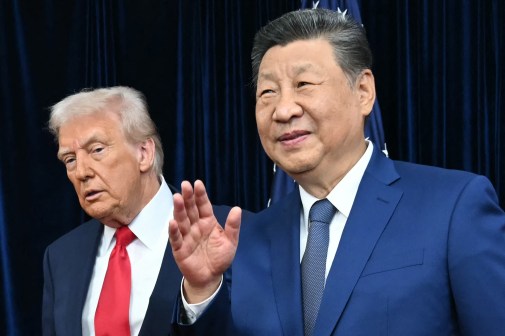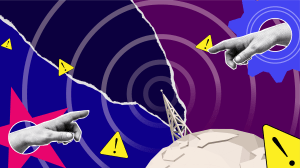Washington believes they stopped Russian hackers with a press release
In the aftermath of formally accusing Russia for hacking into the Democratic National Committee, several prominent U.S. officials offered veiled threats to the Kremlin that could be surmised by a simple message: ‘stop hacking the U.S. or else.’
The U.S.’ top spy says Russia took the hint.
Appearing on Capitol Hill in a rare public committee hearing Thursday, National Intelligence Director James Clapper described that Russia had “curtailed” its cyber espionage activities since the Obama administration’s attribution announcement on Oct. 7.
On Oct. 31, just eight days before the presidential election, the White House also “contacted the Russian government directly regarding malicious cyberactivity” that was “targeting U.S. state election-related systems,” according to an official statement distributed Wednesday.
“That activity seemed to have curtailed,” Clapper told the House Intelligence Committee, “I can’t say what the impact of a new [Trump] administration will have on Russian behavior.’’
A hotline used to connect each counties’ Nuclear Risk Reduction Center was used to transmit the Oct. 31 message. An unnamed senior administration official told the Washington Post they received a “noncommittal” response from Russia.
White House insiders are reportedly “hailing” the effectiveness of their warnings directed at Russia, according to the New York Times.
Any White House decision to attribute a cyberattack to a specific party is determined on a “case-by-case basis,” spokesman Eric Schultz previously told reporters. Ultimately, the Obama administration’s eventual resolution, Schultz explained in late July, would consider the “clarity of evidence pointing to a culprit” and “whether it’s in the U.S.’ best interest to release that information or not.”
“One could envision a scenario where providing public attribution would show that a government has strong technological bases for identifying the perpetrator,” Sean Kanuck, a former national intelligence officer for cyber issues in the Office of the Director of National Intelligence, previously told CyberScoop. “That would in turn inform the perpetrator — and others — that the operational tactics it used to conceal its activity were not successful.”
In late September, FBI Director James Comey said that voter registration databases in more than a dozen states were probed by unnamed hackers. The announcement came shortly after databases in Illinois and Arizona were breached, causing intelligence and defense authorities to ramp-up collaborative cybersecurity plans in advance of the general election.
“We need to make it very clear — whether it’s Russia, China, Iran or anybody else — the United States has much greater capacity. And we are not going to sit idly by and permit state actors to go after our information, our private sector information or our public sector information,” former Secretary of State Hillary Clinton said while on the campaign trail.
Former NSA Director Michael Hayden told a small room of policy analysts, journalists and Capitol Hill staffers Friday, that he believed Trump’s desire to repair relations with Russia provide no guarantees for greater safety in cyberspace. Without well-defined boundaries concerning appropriate behavior, Hayden said there is no reason to believe things will necessarily change.
Some policy analysts remain skeptical about the apparent correlation between the White House’s decision to blame Russian and a recent lessening in cyberattacks.
“It seems a little bold to claim this is a success for deterrence, since the Russians weren’t deterred from doing anything,” James A. Lewis, a security expert at the Center for Strategic and International Studies, told The New York Times. “Their hacking work was mostly complete. The issue now is whether they will be deterred in the future, and the guessing is they will not. Strong private warnings aren’t enough to constitute deterrence.”






